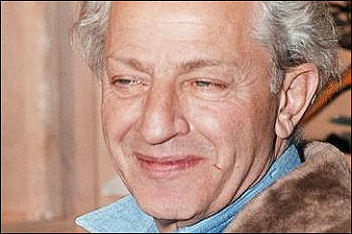As it must to all men, death came today to the great Jules Dassin at age 96. A Greek-descended, Hollywood-employed, highly-rated noir director, Dassin was blacklisted in 1949 only to bounce back with Rififi (’55), the greatest heist film ever made. (Rififi was actually released in France in ’54.)
The Paris-based melodrama re-ignited Dassin’s career and led to subsequent hits such as He Who Must Die (’57), the lightly comedic heist film Topkapi (’64), Phaedra (’62),and the legendary Never on Sunday (’60). He also directed Uptight (’68 — a Harlem-based remake of John Ford‘s The Informer), Promise at Dawn (’70), The Rehearsal (’74) and Circle of Two (’80).
Dassin’s noteworthy Hollywood-era films include Brute Force (’47), The Naked City (’48) and Night and the City (’50). Forget noteworthy — these three are essential if you haven’t yet seen them.
I’ll forever be grateful for having attended Dassin’s special visit to the L.A. County Museum of Art in 2004, during which he spoke on-stage for about 90 minutes before a screening of Rififi. A 40-minute video of that visit can be found on the Criterion Collection’s 2007 DVD of The Naked City.

Jules Dassin
One of Dassin’s more ardent admirers was Alexander Payne, who felt a kinship based on their common Greek heritage. Payne told me this afternoon that he recently lobbied for Dassin to be given a special honorary Oscar from the Academy, but it was no-go.
In view of the Academy having given a politically controversial honorary Oscar to Elia Kazan, who was despised in some corners for having named (or confirmed) names to HUAC, Payne feels “it would have been nice for the Academy to have acknowledged both sides of that very difficult coin — a director who stayed, and another who was forced to leave.”
Dassin was married to Greek actress Melina Mercouri until her death in 1994. He was a very wise, charming and elegant man, to judge from his comments during the LACMA interview. He deserves some kind of special posthumous tribute on next year’s Oscar show, considering how the Hollywood community came close to ruining Dassin’s life during his creative prime.









